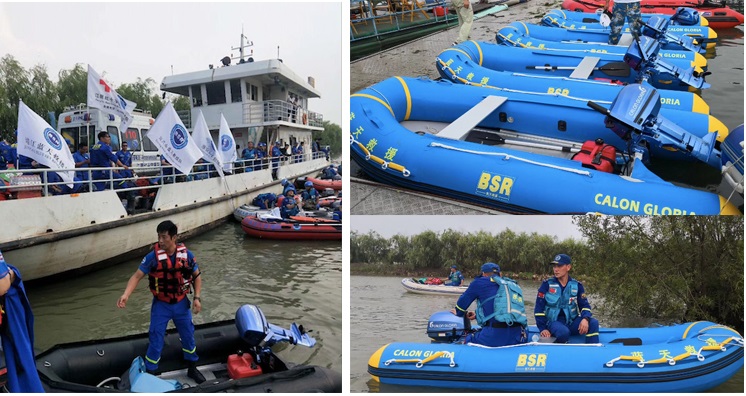Sailing a boat in the ocean is a pleasure. You can enjoy the sea scenery or collect a bunch of saltwater fish for dinner. So, does saltwater have an effect on the operation of the outboard motor? How can I make sure the outboard is not eroded while sailing? If you want to know, read on in this article.
Use a good quality flush adapter that fits the lower unit's water collector port and run the engine in neutral for at least 5 minutes to flush out any salt. Your owner's manual will provide you with more information on this procedure, including important safety precautions.
Most outboard engines are equipped with zinc anodes that "sacrifice" themselves to protect other metal parts from corrosion. However, to maintain proper operation, these zinc anodes need to be replaced as recommended in the owner's manual, or once they are reduced to less than 50% of their original size. In some extremely corrosive salt water areas, it is wise to add an additional zinc anode below the boat's draft line and connect it to the engine using quality marine wire.
Careful cleaning with mild soap and water will not only make your outboard engine look good, but it will also remove salt and other deposits. Using a good quality marine wax will help seal and protect the finish from the sun and salt.
Direct UV rays from the sun can damage finishes and deteriorate exterior plastic and rubber parts. For this reason, it is best to store your engine out of direct sunlight. If direct sunlight is not possible, protect the engine with a high quality, UV resistant fabric cover while in storage.

Every second or third trip, after making sure the engine is turned off and cool to the touch, remove the outboard's hood and apply a silicone spray to the powerhead. Be sure to use a silicone spray that will not damage the rubber and plastic. One of the best methods is CRC brand heavy-duty silicone lubricant.
Always check your outboard for nicks and scratches, which is where corrosion can start and spread. Repair any surface scratches with a color-matched touch-up paint. On deeper scratches - especially where bare metal is exposed - use a quality metal primer first.
Outboards are equipped with special grease fittings for lubrication and to prevent corrosion at critical points where the engine rotates and spins. Use a grease gun to apply grease through these fittings regularly, as recommended in the owner's manual. In addition, periodically remove the propeller and apply a coat of grease to the propeller shaft.
If you need to buy the high-quality outboard motors, please drop us a line today and get the quote.